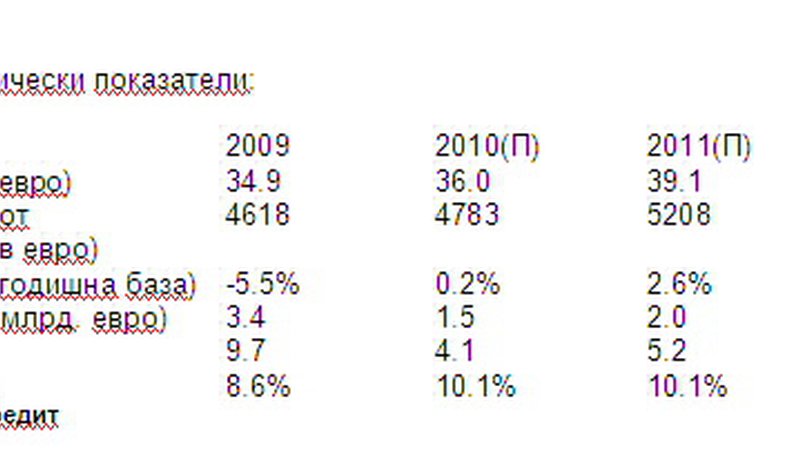
• Core inflation is expected to remain subdued, as domestic demand recovery progresses only very slowly
The sluggish recovery of the labour market and the growing inflation will be the main obstacles to the household consumption recovery, which gained momentum towards the end of last year. This is one of the main conclusions regarding Bulgaria presented in the latest economic quarterly analysis of the Central and Eastern Europe countries, prepared by UniCredit’s analyst team.
The financial group’s analysts indicate that the growing fuel and food prices will put serious pressure on a major part of the Bulgarian households considering the information that half of the income of the average Bulgarian family is spent on food and energy. „An average Bulgarian family spends a third of its income on food while another 15% goes on various items whose costs are closely linked to energy prices”, states the analysis.
Apart from pressure on the households, the fuel prices growth also gives rise to concerns about export competitiveness as Bulgaria uses almost 2.5 times more energy per unit of GDP than the EU on the average, but these concerns are mitigated by the fact that inefficient use of energy is rather a household sector problem, as two-thirds of the total energy consumption goes there.
The slow household demand recovery, however, will keep holding back GDP growth, which according to the forecasts of UniCredit for this year will be 2.6%, and for 2012 – 3.3%. A sluggish growth outlook for mature markets coupled with the strengthening of the euro will also weigh negatively on the pace of Bulgarian recovery, the UniCredit experts point out.
Their forecasts envisage that except for the higher food and energy prices, core inflation is likely to remain subdued owing to the fact that domestic demand recovery progresses only very slowly.